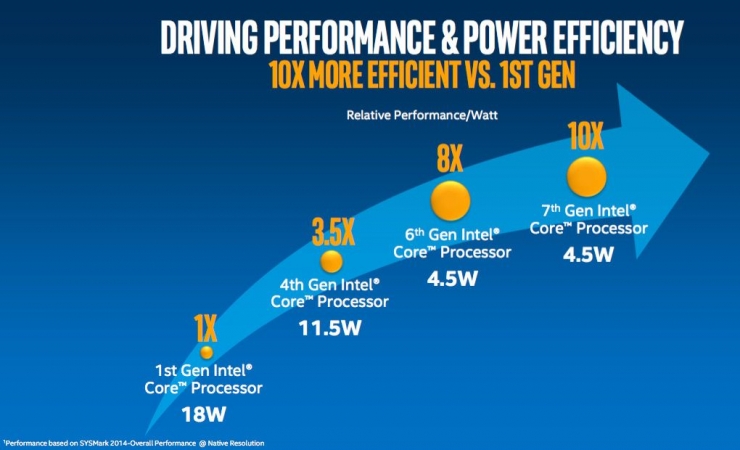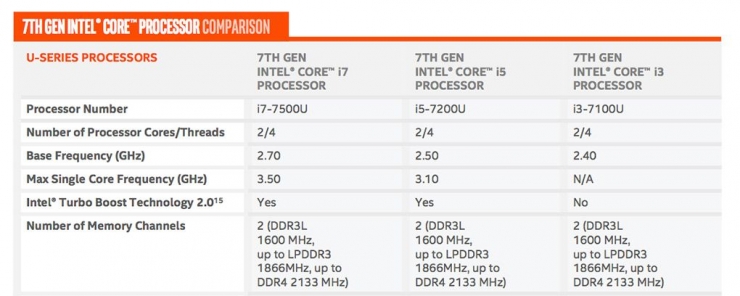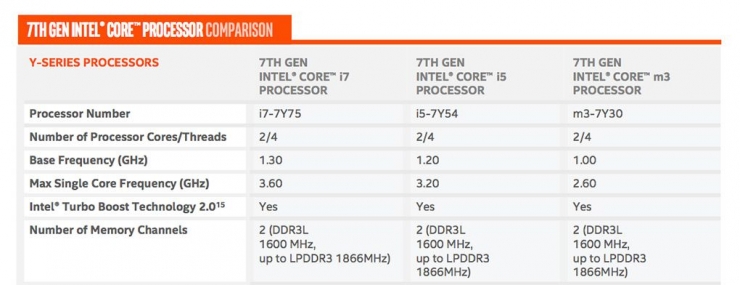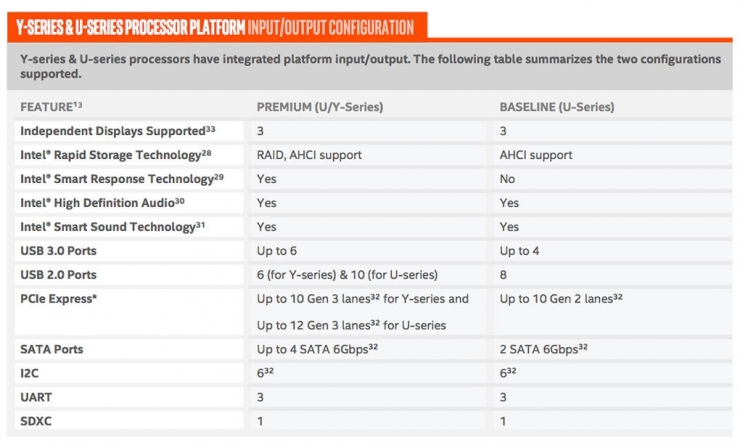
According to foreign media reports, Intel officially announced today the seventh-generation Core processor, Kaby Lake, which is a 14-nm Skylake micro-architecture processor, with improvements in power and efficiency.
Intel said that the 7th-generation Core processors have 8 times the performance per watt of the sixth generation; network performance is 19% higher than before; productivity application performance is 12% higher. Beginning in September, computers that use seventh-generation Core processors will ship one after another. Intel said that with the new processor, laptops with a body thickness of less than 1cm will appear. Intel also emphasized the processor's experience in 4K video, panoramic video, AR, and VR applications.

Specifically, Kaby Lake still uses 14nm process technology in its process, but it has strengthened processes such as fin and transistor channel strain.
On the GPU, the new processor has been improved for 4K video, CPU and GPU power consumption will be reduced to 1/20 in 4K video playback, battery life can be extended 2.6 times, and the overall processor power consumption is reduced by 1.6 times.

In addition, Intel has also improved the Turbo technology and added the Speed ​​Shift technology. It is mainly used to improve the system and application's rapid response to burst frequencies, and the burst response speed is improved to reduce the delay.
It must be mentioned that Kaby Lake is Intel's transition product before the 10nm Cannon lake processor next year, and this year it is doing some "little" improvements.

The Skylake architecture processor has previously experienced problems such as power management, which has forced many vendors to introduce firmware and driver upgrades to fix problems. These problems are also the reason why Apple MacBook products do not choose this architecture processor.